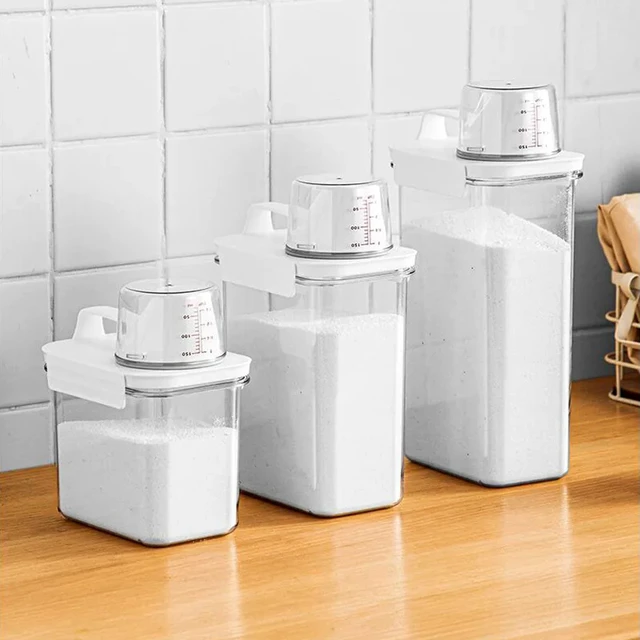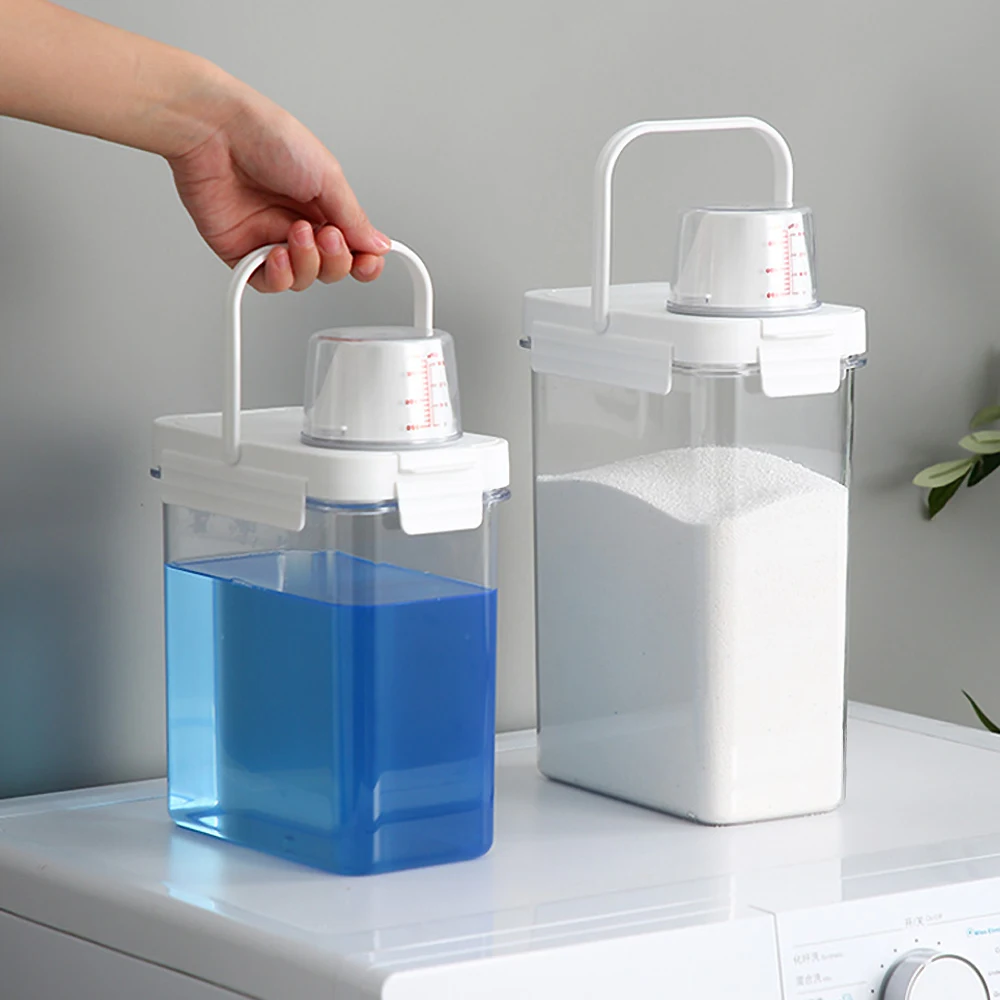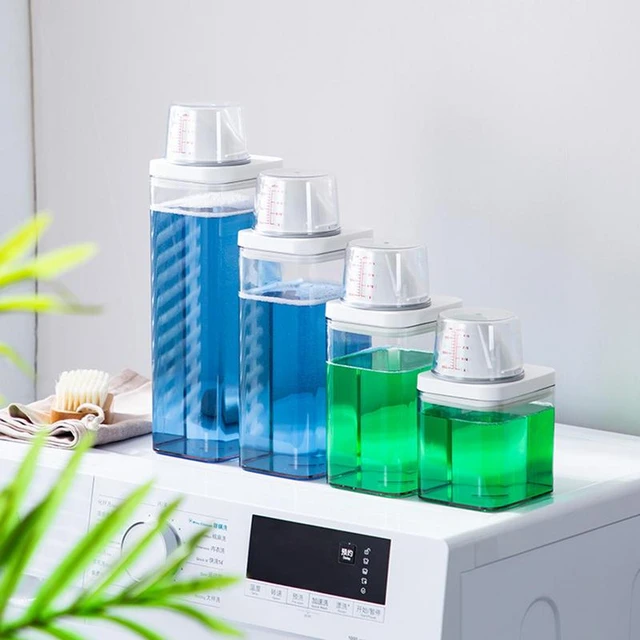 Introduction:
Introduction:
Making your own natural laundry detergent is not only a cost-effective option but also a way to reduce your exposure to harsh chemicals found in commercial detergents. By using simple and natural ingredients, you can create a homemade detergent that is safe for your clothes, your family, and the environment. In this comprehensive guide, we will explore the benefits of DIY natural laundry detergent, discuss the necessary ingredients and equipment, and provide step-by-step instructions for making your own. By following these guidelines, you can embrace a more sustainable and eco-friendly approach to laundry care.
 Benefits of DIY Natural Laundry Detergent:
Benefits of DIY Natural Laundry Detergent:
Environmentally Friendly:
DIY natural laundry detergent reduces the use of chemicals that can be harmful to the environment.
By using natural ingredients, you minimize the release of toxins into water systems.
Cost-Effective:
Homemade laundry detergent is often more affordable than store-bought options.
By using simple and easily accessible ingredients, you can save money in the long run.
Customizable:
DIY natural laundry detergent allows you to customize the fragrance and ingredients to suit your preferences.
You have control over the scents and can avoid potential irritants for sensitive individuals.
Gentle on Clothes:
Natural ingredients in DIY laundry detergent are generally gentler on fabrics.
This can help extend the lifespan of your clothes and prevent color fading or damage.
Necessary Ingredients and Equipment:
Baking Soda:
Baking soda acts as a natural cleaning agent and helps remove odors and stains from clothes.
Washing Soda:
Washing soda, also known as sodium carbonate, boosts the cleaning power of the detergent.
Borax:
Borax, a naturally occurring mineral, aids in stain removal and acts as a water softener.
Castile Soap:
Castile soap is a gentle and natural soap made from vegetable oils.
It provides the cleaning power in the detergent.
Essential Oils (Optional):
Essential oils can be added for fragrance and potential antimicrobial properties.
Options such as lavender, tea tree, or lemon oil work well for laundry purposes.
Grater or Food Processor:
A grater or food processor is necessary for finely grating the castile soap.
Mixing Bowl or Container:
A mixing bowl or container is needed to combine the ingredients and store the detergent.
 Step-by-Step Instructions:
Step-by-Step Instructions:
Grate the Castile Soap:
Start by grating the castile soap using a grater or food processor.
Aim for fine shavings to ensure easy mixing.
Combine the Ingredients:
In a mixing bowl or container, combine 1 cup of washing soda, 1 cup of borax, and the grated castile soap.
Mix the ingredients well until evenly distributed.
Add Essential Oils (Optional):
If desired, add a few drops of your chosen essential oils to the mixture.
Stir well to distribute the scent evenly.
Store the Detergent:
Transfer the homemade laundry detergent to a tightly sealed container for storage.
Use a measuring spoon or tablespoon to portion out the detergent for each load of laundry.
 Usage Instructions and Tips:
Usage Instructions and Tips:
Usage Amount:
For each load of laundry, use approximately 1-2 tablespoons of homemade detergent.
Adjust the amount based on the size of the load and the level of dirtiness.
Pre-Treating Stains:
For tougher stains, create a paste using the homemade detergent and a small amount of water.
Apply the paste directly to the stain and let it sit for a few minutes before washing as usual.
High-Efficiency (HE) Washers:
Homemade laundry detergent is suitable for high-efficiency washers.
Use the recommended amount of detergent based on the machine’s guidelines.
Storage and Shelf Life:
Store the homemade detergent in an airtight container in a cool, dry place.
It can last for several months, but it’s best to make smaller batches and use them within a reasonable time frame.
Safety Precautions:
While the ingredients used in homemade laundry detergent are generally safe, it’s important to handle them with care.
Avoid inhaling the powdered ingredients, and wash your hands thoroughly after handling them.
Disadvantages to consider:
While making DIY natural laundry detergent has its advantages, there are also some potential drawbacks and disadvantages to consider. Here are a few of them:
Cleaning Power:
DIY natural laundry detergents may not have the same cleaning power as commercial laundry detergents. The absence of certain chemicals and enzymes found in commercial detergents can result in less effective stain removal, especially for tough stains or heavily soiled clothes.
Fragrance Options:
Commercial laundry detergents often offer a wide range of fragrances to choose from. DIY natural detergents may not provide the same variety of scents, as they typically rely on natural ingredients like essential oils for fragrance, which may have a more limited range of options.
Ingredient Availability:
Some DIY laundry detergent recipes may call for specific ingredients that may not be readily available or easily accessible in all areas. This can make it more challenging to source the necessary ingredients to create the detergent.
Time and Effort:
Making DIY natural laundry detergent requires time and effort. It involves obtaining the ingredients, carefully measuring and mixing them, and storing the homemade detergent properly. For those with busy schedules or limited time, this can be a disadvantage compared to the convenience of purchasing commercial detergents.
Shelf Life and Stability:
DIY natural laundry detergents may not have the same shelf life or stability as commercial products. Without the addition of preservatives or stabilizers, homemade detergents may have a shorter shelf life and can be prone to separating or deteriorating over time.
Risk of Improper Formulation:
DIY natural laundry detergents require accurate measurement and formulation to ensure proper cleaning efficacy. Inexperienced or improper formulation may lead to ineffective cleaning or potential damage to clothes.
It’s essential to carefully research recipes, follow instructions accurately, and consider your specific cleaning needs and preferences when deciding to make DIY natural laundry detergent. While it offers potential benefits, it may not suit everyone’s requirements, and commercial alternatives may be preferred for certain situations.
 Conclusion:
Conclusion:
DIY natural laundry detergent offers numerous benefits, including environmental friendliness, cost-effectiveness, customizability, and gentleness on clothes. By using baking soda, washing soda, borax, castile soap, and optional essential oils, you can create a homemade detergent that effectively cleans your clothes. Follow the step-by-step instructions, store the detergent properly, and use the recommended amount for each load of laundry. With DIY natural laundry detergent, you can embrace a more sustainable and eco-friendly approach to laundry care.